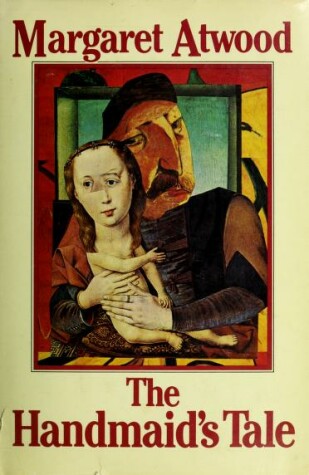
mitabird
Written on Mar 23, 2014

Bookhype may earn a small commission from qualifying purchases. Full disclosure.
The Handmaid's Tale is a radical departure for Margaret Atwood. Set in the near future, in a locale that oddly resembles Cambridge, Massachusetts, it describes life in what was once the United States. Now, however, it has become the Republic of Gilead, a monolithic theocracy that has reacted to social unrest and a sharply declining birthrate by reverting to the repressive intolerance of the original Puritans, and has gone far beyond them. This regime takes the Book of Genesis absolutely at its word, with bizarre consequences for women, and for men as well.
The story is told through the eyes of Offred, one of the unfortunate "Handmaids" under the new social order. In condensed but eloquent prose, by turns cool-eyed, tender, despairing, passionate, and wry, she reveals to us the dark corners behind the establishment's calm facade, as certain tendencies now in existence are carried to their logical conclusions.
the Handmaid's Tale is A Clockwork Orange as seen by women: unexpected, funny, horrifying, and altogether convincing. the book is at once a mordant satire and a dire warning. this is Atwood in top form.
--front flap


We lived, as usual, by ignoring. Ignoring isn't the same as ignorance, you have to work for it. Nothing changes instantaneously: in a gradually heating bathtub you'd be boiled to death if you knew it.[b:The Handmaid's Tale|38447|The Handmaid's Tale|Margaret Atwood|https://images.gr-assets.com/books/1498057733s/38447.jpg|1119185] by [a:Margaret Atwood|3472|Margaret Atwood|https://images.gr-assets.com/authors/1282859073p2/3472.jpg] is an incredibly smart critique and satire on religious fundamentalism taken to an even greater extreme. The novel itself is unsettling as a result of being written in the present tense, so that while reading I was on edge that at any moment something could happen to the narrator and the story would end abruptly. The style of writing set the tone for the dangerous world of Gilead, but the most disturbing element of the novel was the religious fundamentalism itself. Gilead obviously took a literal interpretation of the Bible as second marriages were outlawed, and “be fruitful and multiply” led to placing reproduction to be the primary goal for the society of Gilead. As a woman, I was most shocked by the objectification of women to be little more than baby makers, and that a woman’s worth is solely based on her ability to reproduce: “I want to be valued, in ways that I am not; I want to be more than valuable."
I would like to believe the story I'm telling. I need to believe it. I must believe it. Those who can believe that such stories are only stories have a better chance. If it's a story I'm telling, then I have control over the ending."The book is told in Offred's stream-of-consciousness point of view in her mind, a reconstruction of her past. There are times in her narrative where she says "this isn't how it happened," in brief glimpses of humor in even the darkest of circumstances. I read the book feeling like I was inside her mind listening to her thoughts, something that is reinforced by Atwood's writing style and the omission of quotation marks.
There is more than one kind of freedom, said Aunt Lydia. Freedom to and freedom from. In the days of anarchy, it was freedom to. Now you are being given freedom from.This is my fourth time reading The Handmaid's Tale and each time it impresses me in different ways; this time was particularly jarring considering the current political climate in the United States and how desensitized we are to everything going on around us. This book is horrifying, casting a light on the darkest parts of society. It is beautifully written and heart wrenching, and I recommend that everyone reads it. And then watches the television series because it is also brilliant.
Better never means better for everyone, he says. It always means worse, for some.





